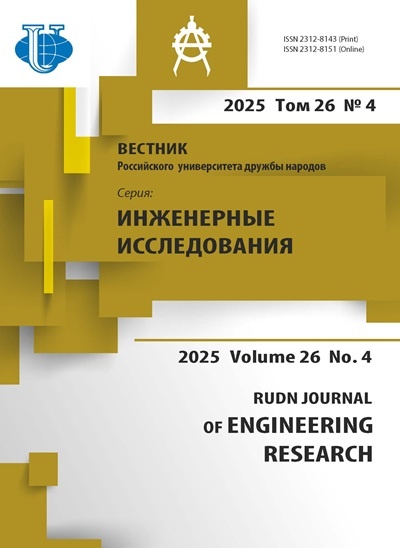Difficulties for detecting the singular points with commercial programs in space structure and a method for determining the real capacity of the structures
- Authors: Heidari A1, Galishnikova VV1, Mahmoudzadeh K.I2
-
Affiliations:
- Peoples Friendship University of Russia
- Tehran University College of Engineering,University of Tehran
- Issue: No 1 (2013)
- Pages: 100-108
- Section: Articles
- URL: https://journals.rudn.ru/engineering-researches/article/view/4742
- ID: 4742
Cite item
Full Text
Abstract
For design purposes, the stability of any structure being designed is of paramount importance. The fact that it is possible to perform an analysis on a space structure which shows that the stresses in that structure are all below those permissible for the materials used in its construction, is in itself no guarantee that when the structure is loaded it will not collapse. In order to determine this, it is necessary to find out if the structure is stable under the action of the applied loads. The secondary paths, especially in unstable buckling can play the most important role in collapse of the structure [2]. Analytical solutions for space trusses of the desired type which cover both nonlinear deformation and stability are difficult to find in the literature. In order to provide the desired benchmark, the complete theory and the exacl soulution for the nonlinear deformation and the stability of a regular tripod subjected to a load which acts in the direction of its axis of symmetry is presented in this work [1]. In this paper the dificulies for analysis the space structure in detecting the singular point and obtaining the real load carying capacity of these structures has been investigated and finaly a method for overcome to this problem has been presented. The numerical predictions in presented method has been verified with analytical soulotion in a space truss and and Laboratory results in a space frame.
About the authors
A Heidari
Peoples Friendship University of Russia
Email: alborz.dimas@gmail.com
Department of Building Structures and Constructions Engineering faculty
V V Galishnikova
Peoples Friendship University of Russia
Email: galishni@gmail.com
Department of Building Structures and Constructions Engineering faculty
Kani I Mahmoudzadeh
Tehran University College of Engineering,University of Tehran
References
Supplementary files















